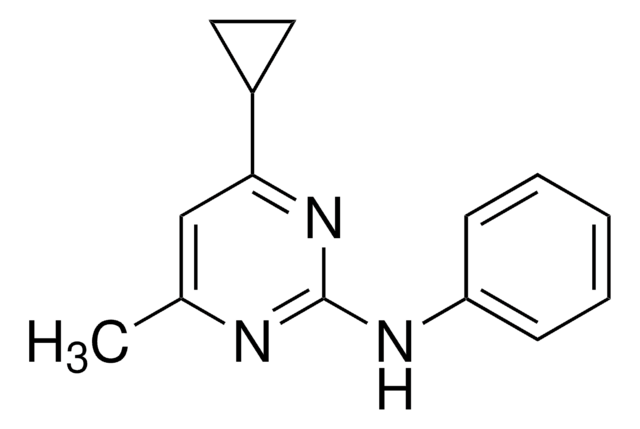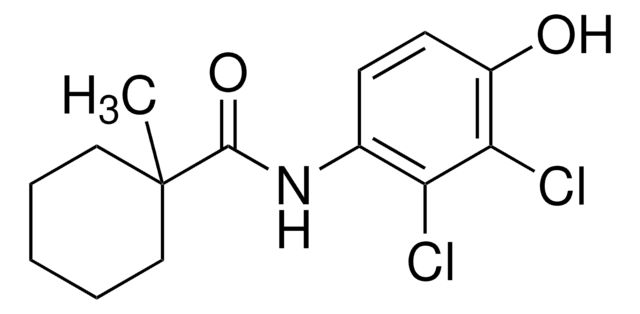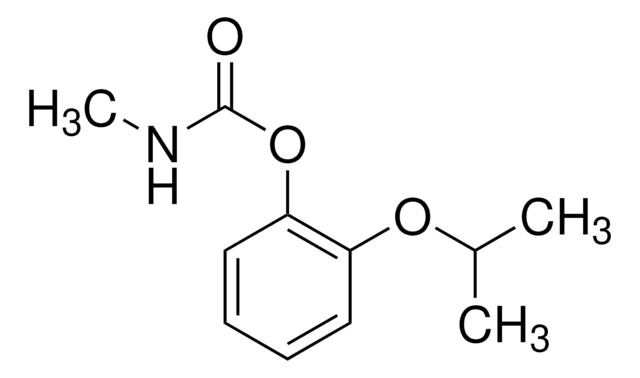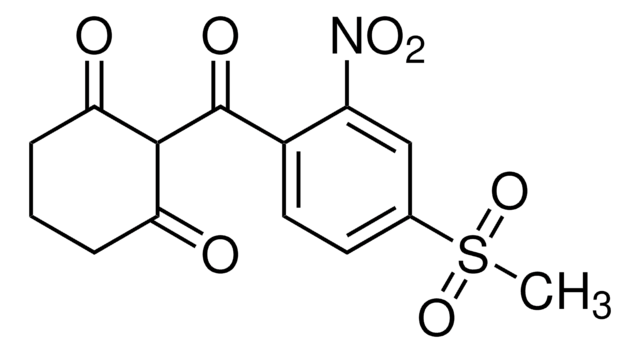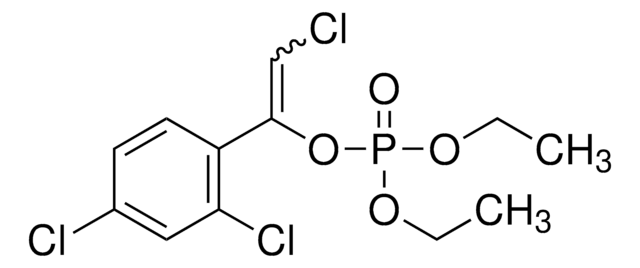34389
Cyprodinil
PESTANAL®, analytical standard
Sinónimos:
4-Cyclopropyl-6-methyl-N-phenylpyrimidin-2-amine
About This Item
Productos recomendados
grade
analytical standard
product line
PESTANAL®
shelf life
limited shelf life, expiry date on the label
technique(s)
HPLC: suitable
gas chromatography (GC): suitable
application(s)
agriculture
environmental
format
neat
SMILES string
Cc1cc(nc(Nc2ccccc2)n1)C3CC3
InChI
1S/C14H15N3/c1-10-9-13(11-7-8-11)17-14(15-10)16-12-5-3-2-4-6-12/h2-6,9,11H,7-8H2,1H3,(H,15,16,17)
InChI key
HAORKNGNJCEJBX-UHFFFAOYSA-N
¿Está buscando productos similares? Visita Guía de comparación de productos
Application
Legal Information
signalword
Warning
hcodes
Hazard Classifications
Aquatic Acute 1 - Aquatic Chronic 1 - Skin Sens. 1
Storage Class
11 - Combustible Solids
wgk_germany
WGK 2
flash_point_f
Not applicable
flash_point_c
Not applicable
ppe
dust mask type N95 (US), Eyeshields, Faceshields, Gloves
Elija entre una de las versiones más recientes:
¿Ya tiene este producto?
Encuentre la documentación para los productos que ha comprado recientemente en la Biblioteca de documentos.
Los clientes también vieron
Nuestro equipo de científicos tiene experiencia en todas las áreas de investigación: Ciencias de la vida, Ciencia de los materiales, Síntesis química, Cromatografía, Analítica y muchas otras.
Póngase en contacto con el Servicio técnico

